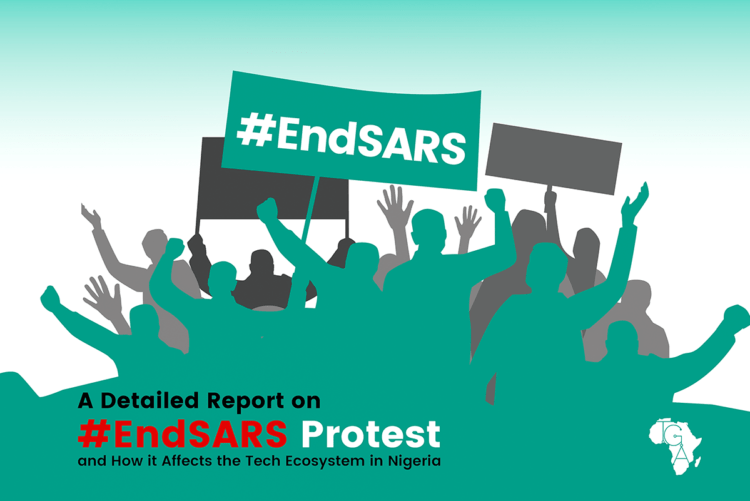For over two weeks, the voices of Nigerian youths at home and diaspora echoed globally against the unjust treatment and impunity of the Special Anti-Robbery Unit of the Nigerian Police Force. For the first time since the #EndSARS movement started in 2017, top celebrities from around the world supported protesters to speak against police brutality in Nigeria.
The government has promised and failed to prosecute the officers despite clear evidence of the misuse of office by SARS officers. Although what started as a peaceful protest was hijacked by hoodlums and led to the loss of lives and properties, the youths made history. This time, the police have to be reformed for good. In this article, we will be looking at how all these affected the Nigerian tech ecosystem.
Amnesty International, @hrw and 40 other civil society organizations jointly call for immediate and thorough investigation of allegations of unlawful killing and use of excessive force against protestors in Lagos on the evening of Tuesday 20 Oct. 2020.#EndSARS
— Amnesty International Nigeria (@AmnestyNigeria) October 22, 2020
The Media Blew Away!
The hashtags #EndSARS, #SARSMUSTENDNOW, #SARSMUSTEND, #SWATMUSTEND, and EndSWAT trended on the international media space nonstop. Many people became interested and started following the narrative of indigenous media, and traffic was at an all-time high for bloggers, TV stations, and influencers. All these were made possible because of the spread of information via social media.
Then, Funds were Raised
The #EndSARS hashtag soon garnered global attention, and funds were raised to cater to the needs of those protesting day and night. Donations came from all over the world and credible persons and organizations managed the funds.
For instance, Twitter was pivotal in creating awareness, Flutterwave, Quidax, and Bundle Africa in crowdfunding, while Feminist Coalition, FK Abudu, Ms Esienette, in organizing and disbursing funds, and several tech startups leveraged their platform to show support.
Everyone Began to Soro Soke (Speak up)
Even Bundle Africa’s CEO and Microtraction founder, Yele Badamosi “soro soke-ed” and narrated his experience via a Twitter thread. He recounted how he was stopped by SARS officers on his way back home last year, October.
Badamosi’s encounter is one of several soar experiences of techies who had to delete savings and bank apps to avoid being extorted by law enforcement officers. Techies are cheap targets because they are young, use laptops, iPhones other tech gadgets, ride good cars, and generally dress well.
People are deleting savings and banking apps to hide money that they earned honestly so they don’t get extorted by law enforcement.
This isn’t normal. We cannot continue to live like this. #EndSARS
— Demotivational Speaker (@OdunEweniyi) October 9, 2020
Will this affect Investor’s Trust?
Aubrey Hruby, co-founder of InsiderPR who invests in African startups once brought in a group of Venture Capitalists from Egypt last year. After meeting with some Nigerian tech startups and discussing brilliant solutions that are viable for funding, they were extorted by some police officers on their way out of the country.
The question is, after experiencing or hearing these sad stories, will investors still opt to invest in the tech economy of the nation? These incidents raise the question in the heart of the hardworking startup founders who are trying to survive despite dealing with regulatory issues and the high cost of licensing fees.
Remember the #StopRobbingUs campaign led by Bosun Tijani, Jason Njoku, Oluyomi Ojo, Iyin Aboyeji, and several others? Last year, these tech leaders led a campaign to protest against the lawful arrest, attack, and extortion of techies by police officers.
Toni Astor’s tweet detailing his encounter with the Special Anti-Robbery Squad in Lagos spurred the campaign. Even Iyin Aboyeji, who co-founded Andela and Flutterwave, has had his fair share of harassment. The same unit of the Nigerian Police Force which is renowned for acting out of order resurrected the #EndSARS movement.

How long will this continue?
You’d find Part 1 here.














